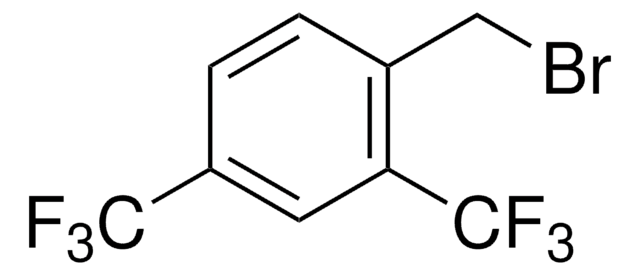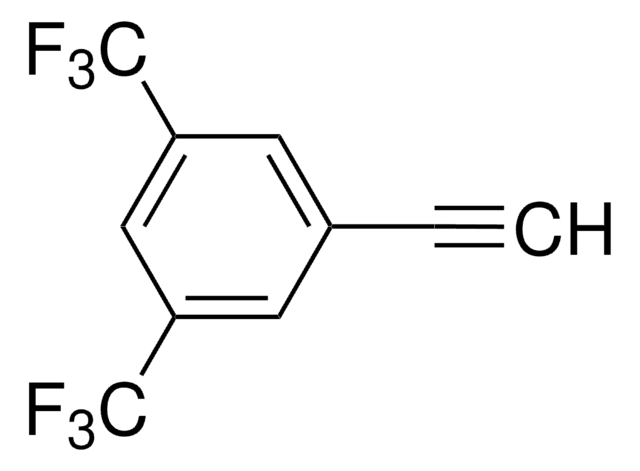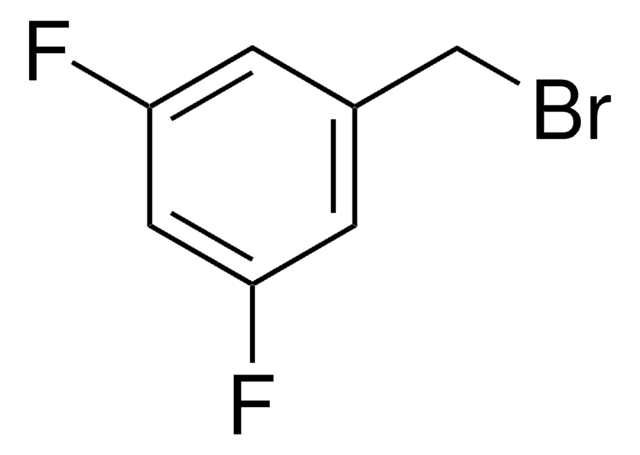263397
3,5-Bis(trifluoromethyl)benzyl bromide
97%
Synonym(s):
1-(Bromomethyl)-3,5-bis(trifluoromethyl)benzene
About This Item
Recommended Products
Assay
97%
form
liquid
refractive index
n20/D 1.445 (lit.)
density
1.675 g/mL at 25 °C (lit.)
SMILES string
FC(F)(F)c1cc(CBr)cc(c1)C(F)(F)F
InChI
1S/C9H5BrF6/c10-4-5-1-6(8(11,12)13)3-7(2-5)9(14,15)16/h1-3H,4H2
InChI key
ATLQGZVLWOURFU-UHFFFAOYSA-N
Looking for similar products? Visit Product Comparison Guide
Related Categories
Application
- as derivatization reagent in detection of uracil in DNA by GC and negative chemical ionization mass spectrometry
- in enantioselective synthesis of non-peptidic neurokinin NK1 receptor antagonist, L-733,060
Signal Word
Danger
Hazard Statements
Precautionary Statements
Hazard Classifications
Eye Dam. 1 - Flam. Liq. 3 - Skin Corr. 1B
Storage Class Code
3 - Flammable liquids
WGK
WGK 3
Flash Point(F)
78.8 °F - closed cup
Flash Point(C)
26 °C - closed cup
Personal Protective Equipment
Certificates of Analysis (COA)
Search for Certificates of Analysis (COA) by entering the products Lot/Batch Number. Lot and Batch Numbers can be found on a product’s label following the words ‘Lot’ or ‘Batch’.
Already Own This Product?
Find documentation for the products that you have recently purchased in the Document Library.
Customers Also Viewed
Our team of scientists has experience in all areas of research including Life Science, Material Science, Chemical Synthesis, Chromatography, Analytical and many others.
Contact Technical Service












